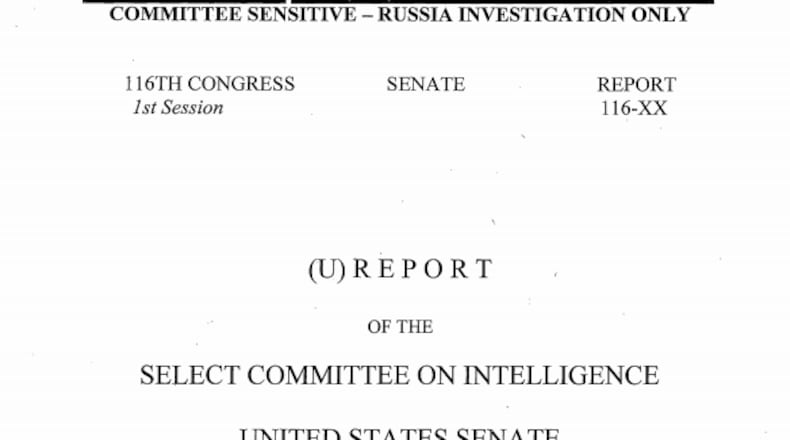With President Donald Trump still denouncing reports on Russian interference in the 2016 elections as "Fake News" or a 'witch hunt,' a new bipartisan report issued Tuesday by the Senate Intelligence Committee reinforces the findings of Special Counsel Robert Mueller, that Russia used an array of social media efforts to try to influence the election in favor of Mr. Trump.
"Masquerading as Americans, these operatives used targeted advertisements, intentionally falsified news articles, self-generated content, and social media platform tools to interact with and attempt to deceive tens of millions of social media users in the United States," the report said, echoing the findings of Mueller's team.
"Evidence of an overarching pro-Trump and anti-Clinton bias leading up to Election Day 2016 is also found in information obtained by Special Counsel's Office," the Senate report says.
The report references emails of the Russians involved, saying they popped some champagne after Mr. Trump was declared the winner.
"We uttered almost in unison: 'We made America great,'" the report said.
If there were divides about the details among Republicans and Democrats on the Senate Intelligence Committee, it was not readily apparent, as the panel released the second volume of their 2016 election review.
Like the Special Counsel investigation, Senators used evidence about the Russian 'Internet Research Agency,' which headed most of the social media efforts during the election.
"The Committee found, that the IRA sought to influence the 2016 U.S. presidential election by harming Hillary Clinton's chances of success and supporting Donald Trump at the direction of the Kremlin," the report says.
The Senate report also found that the Russians had gone after some of those challenging President Trump during the GOP primaries.
"For example, Senators Ted Cruz and Marco Rubio were targeted and denigrated, as was Jeb Bush," the report stated.
The report also found that Russia's intelligence services were undertaking a separate effort on social media as well, as the committee labeled Russia's actions a "calculated and brazen assault on the United States and its democratic institutions."
"The bipartisan Senate Intelligence Committee report is clear," said Senate Democratic Leader Charles Schumer. "Putin exploited social media to spread false information in 2016 elections."
"Russia waged an all-out assault on our democracy — exploiting social media to sow discord, manipulate Americans, and aid Donald Trump’s campaign," said Sen. Michael Bennet (D-CO), as Democrats called on Republicans to act in the Senate on election security legislation.
Like the Mueller Report, this Senate Intelligence Committee report included no hint that Ukraine was involved in the hacking of Democratic Party emails, or in any social media disinformation.
In a phone call with the leader of Ukraine earlier this year, President Trump had urged Ukraine to look into such allegations, including his belief that the email server of the Democratic National Committee might somehow be in Ukraine.
“The server, they say Ukraine has it,” Mr. Trump said, according to a White House summary of the phone call.
The Mueller investigation findings also contained no leads to Ukraine, as critics of the President have said he is simply pursuing a baseless conspiracy theory, which does not pin the blame on Russia.
About the Author
The Latest
Featured





